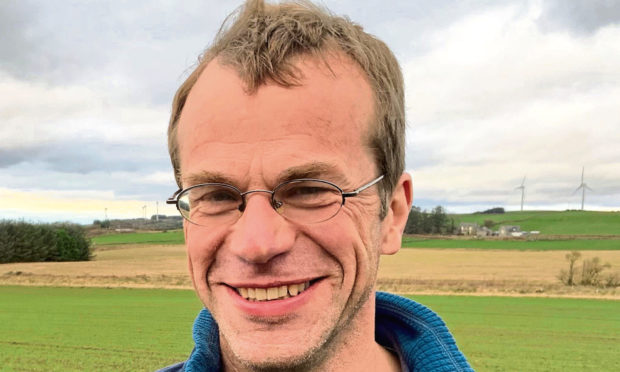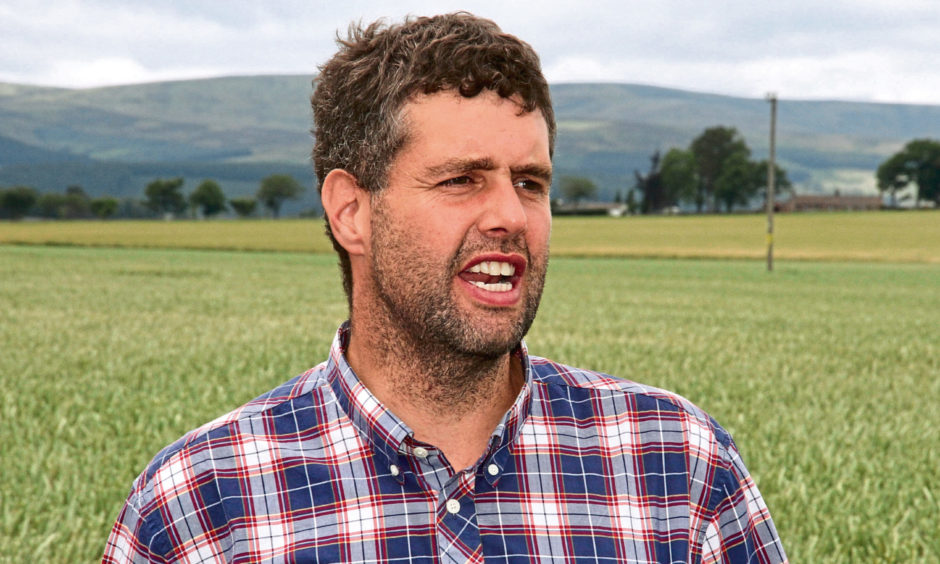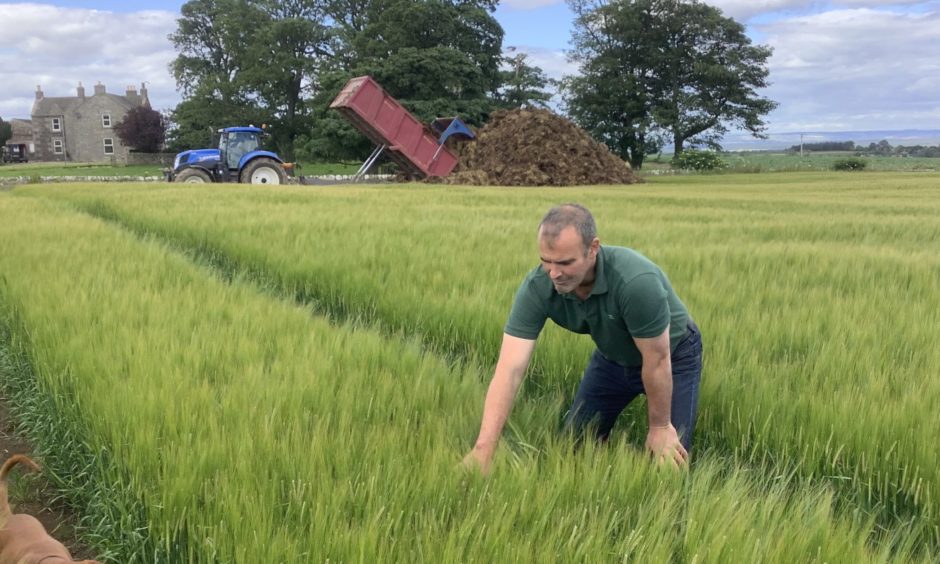The achievements of Scotland’s top arable farmers in growing some of the UK’s best-performing crops have been recognised in the national Yield Enhancement Network (Yen) awards.
Aberdeenshire farmer and agronomist Iain Learmonth, Greens of Savoch, Auchnagatt, not only won a gold award for the best percentage of potential yield in the UK in 2020’s overall cereal YEN competition, with 102% of 13.9t/ha, he was agronomist to Peter Chapman of South Redbog, Strichen, who won three times for his spring barley and winter wheat.
Also in the top line-up was Fife grower Dave Bell of Upper Magus farm, Strathkinness, who took the UK’s gold prize for the best yield in a field of spring barley of 11.3 t/ha and a silver for potential yield of 83% of 13.7 t/ha.
Glamis grower Duncan Wilson of Strathmore Farming Company achieved bronze for 74% of 10.4 t/ha in the spring barley best percentage of yield competition.
Iain Learmonth, who looks after 25,000 acres of cereal and potatoes in Aberdeenshire, said his winning crop was Skyscraper winter wheat.
He generously pointed out the weather in the north-east this year meant conditions had been more favourable than in many parts of the UK.
“It wasn’t the perfect season, and while it was dry in the spring the rain came just in time to save the crops, whereas further south it was too late.”
Peter Chapman’s awards included the overall UK bronze and the top Scottish prize for a yield of 14.8 t/ha of Skyscraper as well as a gold for the best percentage of potential yield for his Diablo spring barley, which was 87% of 11.1t/ha, and a bronze in the overall best spring barley yield category of 9.7 t/ha.
Future yields
Yen competition founder, Roger Sylvester-Bradley, said that although fewer growers had good crops to enter this year, there had been some “amazing” yields.
But he added that the results were making some believe that science-based estimates of crop potential were too pessimistic.
He added: “A few yields are even questioning whether our science-based estimates of crop potentials – averaging 18 t/ha from autumn sowings this year – are too pessimistic.
“This is how farming and science can make progress together – by farmers and scientists sharing their results and posing hard questions to each other.”
ADAS crop physiologist Sarah Kendall said the winning crops achieved high ear numbers, which are crucial in creating the storage capacity required by barley crops.












